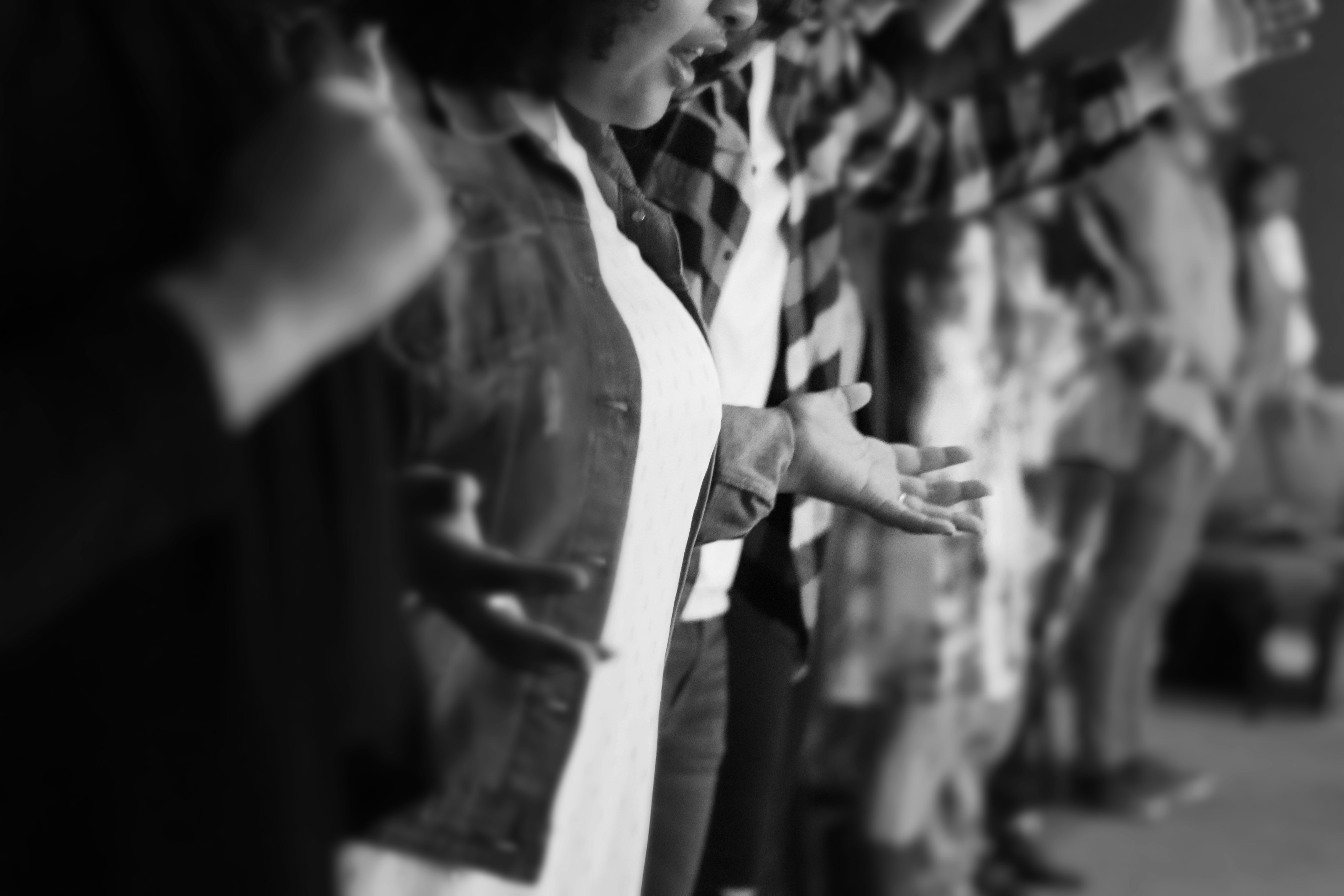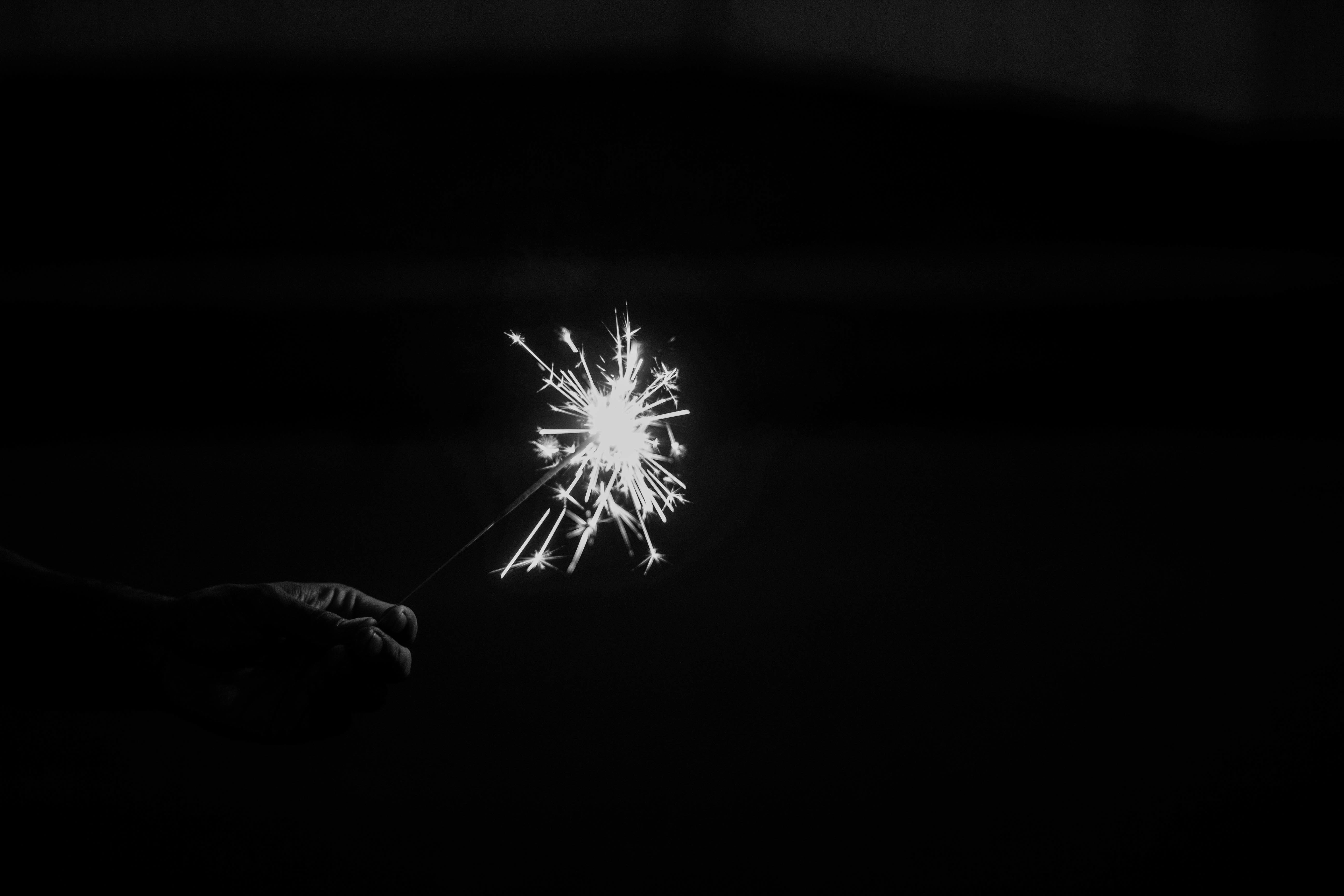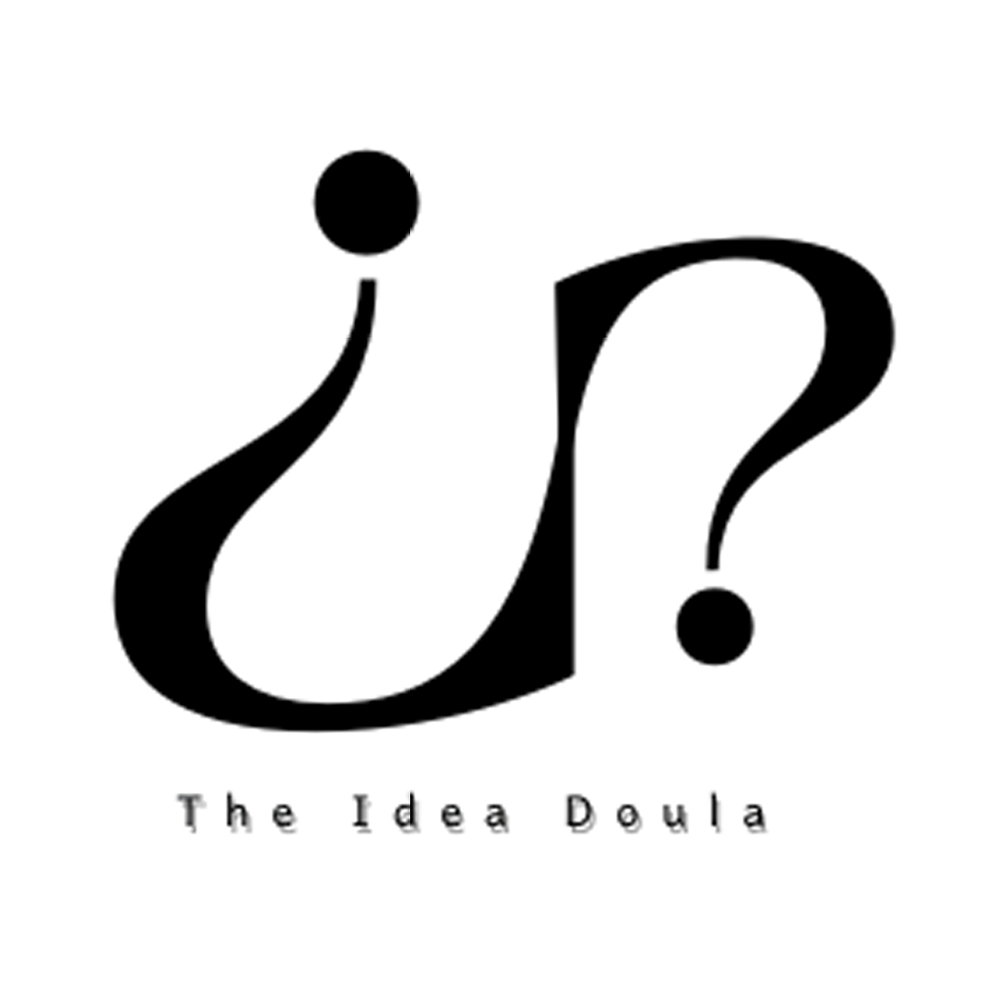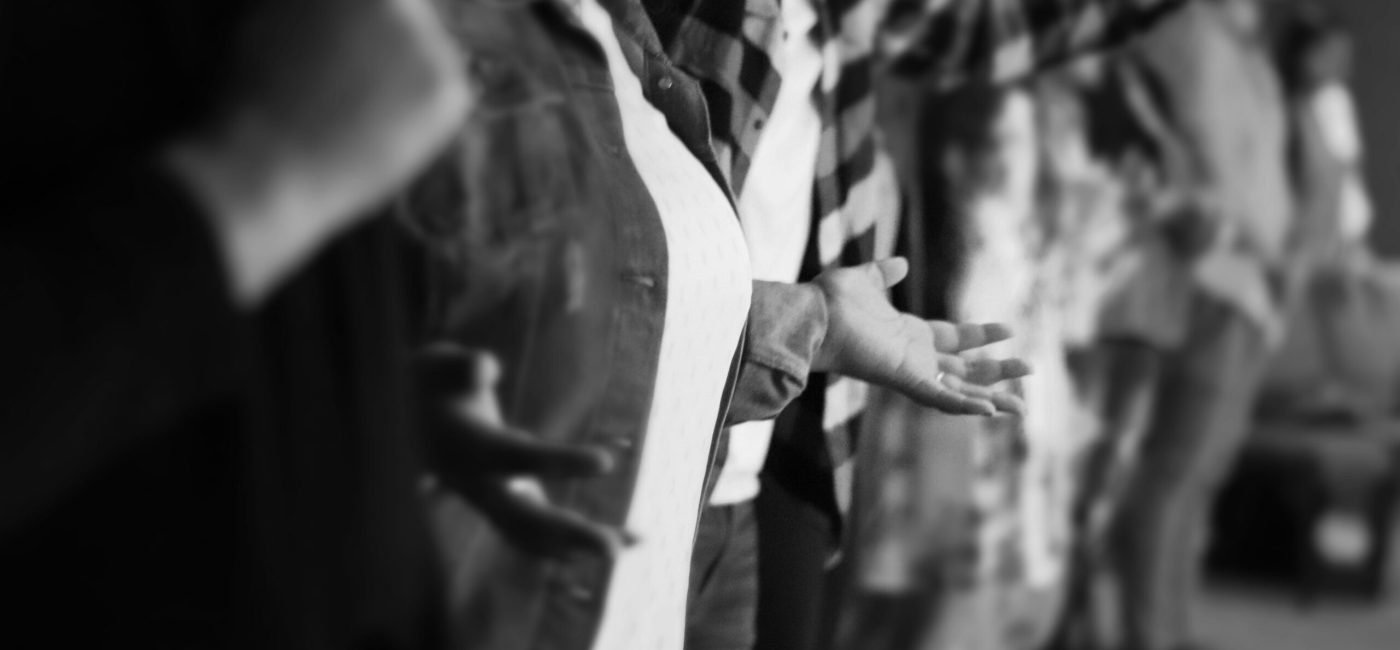The beginnings of a personal exploration
Every once in a while, I become overwhelmed with my existence. I melt down in loud, messy ways and luckily, my support structures are sturdy enough to hold me through my turmoil. My partner tells me I overthink my overthinking, judging my intentions and then condemning my reactions to these judgments. I know I’m not the only one. I know I’m not the only person whose self-awareness feels more like a curse than a blessing. When I look at the state of the world, I recognize a deep subversion of emotional experience and expression. Within this subversion, I see people being lured into extreme emotional experiences with the promise of radical transformation, only to leave without the necessary metamorphosis that these emotions signal. I also witness people whose extreme emotional experiences are forced down, suppressed where they will not shatter the oppressive systems which exist around them.

I grew up in a Charismatic Pentecostal church. A childhood friend reminded me how we would often go up to the pulpit with our childlike prayer requests, trusting that God was attentive to the desires of children with less than a decade of years between them. I found myself fascinated at the heart of my child self. There is something beautiful about a child who asks for what they need, from God and people. When I sit with it, I imagine that this is the purpose of emotion: to guide people deeper within, further into God and closer to others, people, nature, art, what have you. In this way, I see that extreme emotional experiences remain undigested when we exist in a society that labels deep relationship with self without the proxy of consumerism as navel gazing, and deeper connection with spiritual values and the Divine as delusion. As this happens, closer relationship with others is prevented by the cynicism of our society, citing normal interpersonal experiences like intrusion, interruption, conflict, discomfort, disagreement, betrayal, and even harm as too high a cost for community.
[Briefly, I don’t think any kind of relationship is without its dangerous and traumatic possibilities. I’m not talking about embracing harmful practices of relating for the chance at connection. I’m pointing out how people remain disconnected from the transformational qualities of their emotions, especially within the context of deeper relating to others, which is often where these extreme emotions surface.]

I am no stranger to those moments during the worship service where tears would tumble down people’s faces, first as large drops, then flooding torrents, as they sought the face of God through song, dance and passionate prayer. Even as a child, I was surprised; I rarely saw adults crying outside church. One memory comes to mind: A fire had destroyed a factory of some sort. This is among the details of my childhood I cannot distinctly piece together, but I was already going to school, so this happened around the mid 2000s. With vigilance, my parents sheltered me from the 7 o’clock news. But, this tragedy struck at tea time when evening cartoons would daze my expectant, exhausted eyes. The breaking news found me planted solidly in front of the screen. The camera turned to a man, full-on wailing. And in my surprise, I laughed heartily, calling my mother to come witness the utter strangeness of a full-grown man in tears on live television. Visiting me with a thorough scolding, Ma made it clear to me that what I was saying, how I reacted, was cruel. I remained surprised, though apologetic. Extreme emotional experiences outside of church were bizarre.
Eventually, becoming a teenager, I’d attend more than one youth conference that would have a minister make an altar call, young people flying out of their seats in droves. They often looked as if their worlds were shattering, the soberness of their faces and the deep groaning that would accompany those who cried. Hiding our little dating experiences, friendship breakups, and other emotional high and lows from our parents, the next appropriate emotional outlet was that of a religious nature. Extreme emotional experiences had children barely into high school dedicating themselves to following Christ, abstaining from sex, drugs, rock and roll. Of course, the dedication would wane, for many kids right after the service. Stewing in shame for listening to secular radio, bumming a cigarette or, God forbid, engaging in heavy petting (that’s “making out” for you youngins), I imagine we all began to learn that extreme emotional experience was something you left on your way out of church, alongside the hymnal and your offering. Your shame-veneered humanity, you could walk that out into the world; it wouldn’t inspire any kind of transformation. It would leave the shadows untouched, all the while exalting a fragile ego. In my church circles, we may have all been Protestant-born, but the guilt was Catholic through and through.
The emotional experiences cultivated during worship seemed predatory when I realized that the offering would be taken right after, when spirits were still high. Though I am not entirely certain that worship is designed to get the faithful to dig deep into their pockets, I am not entirely uncertain either. Rounding out an emotionally-charged session of sharing about our struggles as teenagers by presenting us with a slip of paper where we vowed save ourselves for marriage seemed predatory as well, but again, it isn’t unique within the grand scheme of things these days. Almost everything is centered on inciting a response in allegiance to some oppressive structure: even the most cynical and nihilistic individuals find themselves buying into ironic advertising that hooks their emotion or lack thereof.
After leaving the church, I noticed this emotional manipulation is at work everywhere in the world. Extreme emotional experiences are leveraged in every day life, influencing the way people respond and behave. Psychedelics are abused to inspire spiritual highs that leave without impact, aside from a great story to tell the people we party with. Going on a bender provides no catharsis, only the entertainment that burns with shame after it leaves your lips. “Things got so crazy last weekend,” we laugh, leaving out the pit of despair that engulfs the heart. Sexual encounters, ranging from out of this world to sickening, turn into sites where we experience something so powerful, and due to the way we’ve been socialized, this impact becomes fleeting. Scandals, depraved to the nth degree, leave us shellshocked. Emboldened, mean people say even worse things in the hidden environment of social media. Anger, despair, jealousy, hatred, joy, love, hope: they flare, firing endlessly. If I could name it, I imagine we’re living in an era of cyclical emotional flareups and burnout.

It is increasingly clear to me that extreme emotional experiences are medicine. And they can be harmful if their potency is left unrecognized or undervalued. I find that, in my own life, years of suppression created duplicity in my nature: I would be one person with my family and another person in the different circles I was a part of. Now approaches the state of sincerity where the healing brought about through my emotional experiences will shine forth. I know this is going to happen with and through many of us. I hope we can allow this medicine to take its full course.
In the future, I would like to explore further what I mean by the medicine of extreme emotional experiences. I may share some of my own and strategies that have allowed me to become more flexible in the metabolization of these experiences. For now, my greatest hope is that we can all become aroused (literally, stirred from our slumber) from the cycle of emotional suppression and emotional incitement that causes the richness of life’s experience to be lost on us, to be stolen from us.
Your support is nourishing to this work; please share this with a friend. And if you’re feeling generous, and resourced, feel free to buy me a coffee.

